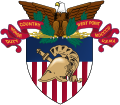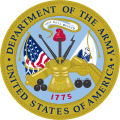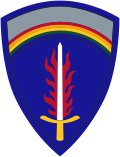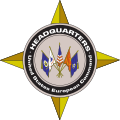George Joulwan | |
|---|---|
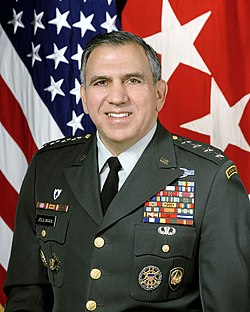 George Joulwan | |
| Born | 16 November 1939 Pottsville, Pennsylvania, U.S. |
| Allegiance | United States of America |
| Branch | |
| Rank | |
| Commands | |
| Battles / wars | Vietnam War |
| Awards | |

George Alfred Joulwan (born 16 November 1939, Pottsville, Pennsylvania) is a retired United States Army general who served for 36 years. He finished his military career as the Commander-in-Chief of the United States European Command and NATO's Supreme Allied Commander (SACEUR) in 1997. [1]
Contents
- Military career
- West Point
- Vietnam
- White House
- National leadership
- International leadership
- Post-military career
- Citizenship and philanthropy
- Personal life
- Awards and decorations
- References
- External links
As the Supreme Allied Commander, he conducted over 20 operations in the Balkans, Africa, and the Middle East. [1] When the United States sent forces into Bosnia in the 1990s, General Joulwan played the leading role in troop deployment, earning praise by President Clinton upon Joulwan's retirement. [2]
As SACEUR, General Joulwan created a strategic policy for the United States military engagement in Africa, which was the first time in U.S. history that such a policy had been crafted. [1]




